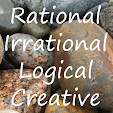The main rival Palestinian factions agreed late Thursday to form a government of national unity aimed at ending a wave of violence between them and an international boycott.This would seem to be at least a step in the right direction for Palestine, if it ever hopes to gain its own state. Learning to work together and showing a respect for the opposition party are actually steps toward democratization which the rest of the international community wants to foster in Palestine.
The agreement, signed here in Islam’s holiest city under Saudi auspices, appeared likely to end, at least for now, weeks of fighting that had ravaged the West Bank and Gaza Strip. Still, it seemed to stop short of meeting the demands of the international community for resuming relations and support for the Palestinian Authority.
[. . .]
Israel and international powers have said that they would lift their boycott of the Palestinian government imposed after the victory by the militant group Hamas a year ago only if it agreed to three conditions: recognize Israel, renounce violence against Israel and abide by previous agreements between Israel and the Palestinians.
There are still road blocks in the way however:
Hamas officials in Mecca bristled at the insistence of accepting Israel, insisting that any concessions they offered would not be enough.This is a good illustration of what I was trying to point out before in this post. Some Palestinian groups want more than just their own state. They want Israel GONE! Period! As noted above, Hamas is one of these groups and Hamas won a majority of seats in the last election, which would seem to indicate that many Palestinians agree with them.
“I wonder why the issue of recognizing Israel is the key to everything?” Ghazi Hamad, spokesman for the Hamas government, said earlier Thursday. “We are interested to end the siege but not at any cost.”
[. . .]
Hamas rejects Israel’s very existence and calls for its destruction. Fatah, which began with that same philosophy in the late 1950s, favors a two-state solution with Israel returning to its borders from before the 1967 war and a Palestinian state built in Gaza, the West Bank and East Jerusalem.
One of the most pressing issues at the moment, however, is whether or not this peace will even last:
Mostly, the Mecca accord promises to end the fighting that has claimed the lives of more than 90 Palestinians, with each side pledging to ease the tensions and turn a new page in their history. The two sides have signed several truces, but each one has broken down.The significance of signing the accord in Mecca occurred to me almost immediately. Hopefully Mr. Meshal is correct that it will lend the agreement enough credibility for it to hold this time.
“These dark days will be completely gone,” Mr. Meshal announced in signing the agreement. “Our Arabic, Islamic unity has brought us together, shining again.” He added that having signed the accord in the holy city lent it greater significance.


No comments:
Post a Comment